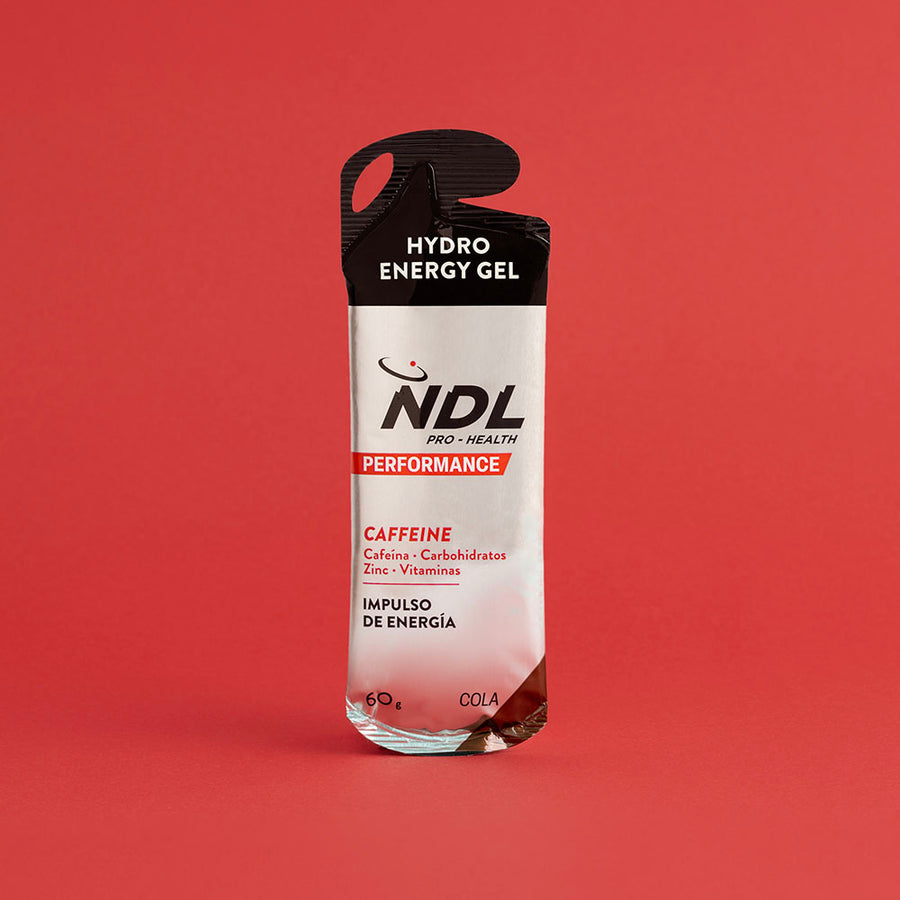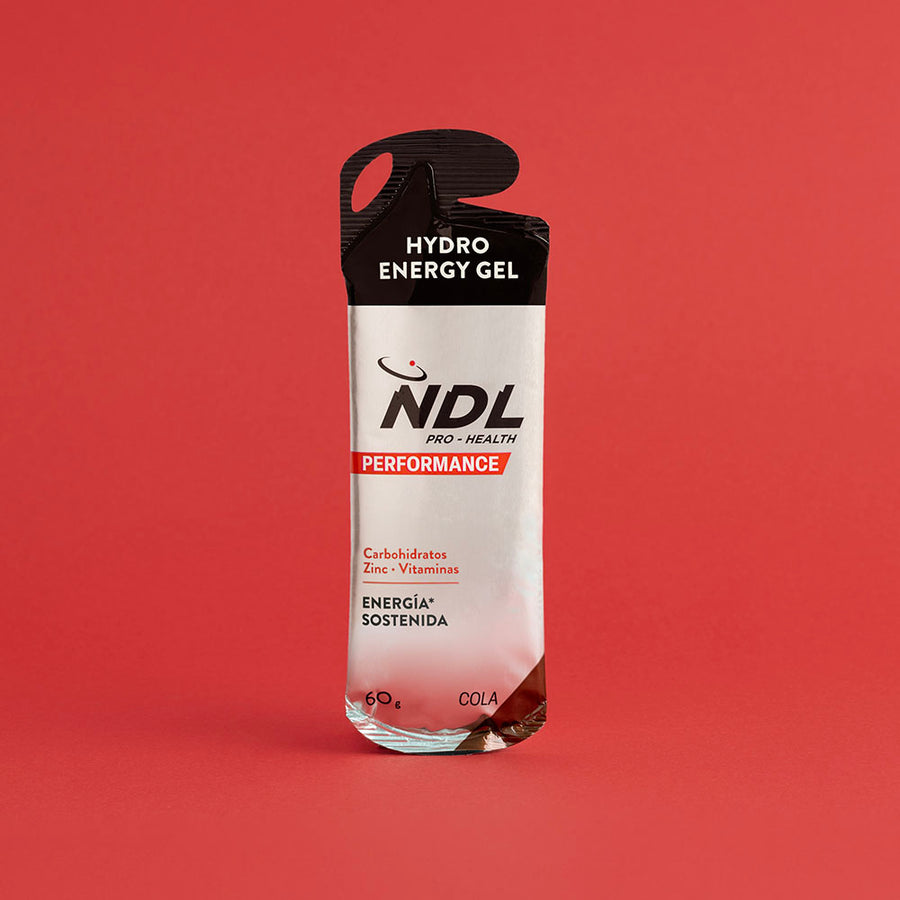Featured Products

Hydro Energy Gel With Caffeine
See product
Hydro Energy Gel
See productDextrose is one of the most widely used supplements in the world of sports, especially in high-intensity or endurance disciplines. Although it’s often associated with energy drinks or bodybuilding products, it’s actually a simple carbohydrate with a very specific function: to provide quick and efficient energy.
Its use goes beyond training; it’s also employed in medical contexts and clinical nutrition. However, like any sugar source, its intake must be well planned and aligned with a specific goal, as it is not suitable for everyone or for any time of day.
In this article, we explain what dextrose is, what it’s used for, when it’s appropriate to take it, and how to do so safely and effectively.
What is dextrose?
Dextrose is a type of simple sugar, chemically identical to glucose, the body’s primary source of energy. In fact, the term “dextrose” is commonly used in the food and sports industries to refer to plant-based glucose, especially the kind derived from corn starch.
On a molecular level, dextrose is a monosaccharide, meaning the body doesn’t need to break it down before absorbing it. This makes it a source of immediate energy, ideal in situations where rapid glucose replenishment is needed in the blood and muscles.
It’s important not to confuse dextrose with other sugars like sucrose (table sugar), which is composed of glucose and fructose, or maltodextrin, a complex carbohydrate that is absorbed more slowly.
What is dextrose used for?
Dextrose is mainly used for its ability to quickly raise blood glucose levels, making it a highly efficient and almost immediate source of energy. These are its most common applications:
- Quick energy boost: Since it is absorbed almost instantly, dextrose provides a burst of energy ideal for intense or prolonged physical activity such as strength training, running, cycling, or team sports.
- Post-workout recovery: After exercise, the body needs to replenish its muscle glycogen stores. Dextrose is especially effective for this purpose, as it stimulates insulin release, which helps transport glucose and other nutrients into muscle cells.
- Enhancing absorption of other supplements: In many sports supplementation protocols, dextrose is combined with substances like creatine or BCAAs. By increasing insulin levels, it improves the uptake and cellular transport of these compounds, enhancing their effectiveness.

Benefits of taking dextrose in sports contexts
Dextrose not only provides fast energy; it can also be a strategic tool at various training stages. Here are real-life scenarios where its use can make a difference:
- During highly demanding workouts: In high-intensity or long-duration sports (crossfit, cycling, football, marathons), taking dextrose during the session can help maintain consistent performance and prevent energy crashes, especially as glycogen stores deplete.
- In accelerated recovery protocols: If you have multiple sessions per day or competitions on consecutive days, rapid glycogen replenishment is key. In such cases, dextrose can shorten recovery time and improve performance in the next session.
- As a transport enhancer: As previously mentioned, combining it with supplements like creatine or amino acids, dextrose boosts their effectiveness by increasing insulin levels, which promotes faster and more efficient cellular transport.
- Mental support in endurance sports: It's not just the muscles that get tired—the brain also needs glucose to function. Dextrose can help maintain focus and mental agility, especially in the final stages of a competition.
In short, dextrose is more than just a quick energy source: when used correctly, it can become a strategic ally for optimizing performance, recovery, and the effectiveness of other supplements, particularly in demanding training or frequent competitions.
When should you take dextrose?
The timing of dextrose intake directly influences its effectiveness. As a fast-absorbing carbohydrate, it is especially recommended when the body needs immediate energy or rapid recovery. Here are the best times to take it:
- Right after training (post-workout): This is the most common use. Consuming dextrose after a tough session helps quickly restore muscle glycogen, stimulate insulin, and improve the absorption of key nutrients like creatine or amino acids.
- During training (intra-workout): During long (over 60–90 minutes) or intense sessions, dextrose can be taken diluted in water to maintain performance and prevent glucose drops that may affect energy and concentration.
- To be avoided during prolonged fasting or without physical activity: Outside of sports settings, dextrose intake is not generally recommended, as it causes an unnecessary blood sugar spike. It is not suitable as a snack or resting energy source—especially if you aim to manage weight or insulin sensitivity.
Ultimately, dextrose is most effective when taken during or immediately after exercise—the times when the body needs fast energy or efficient recovery. Outside of sports, its use is generally unjustified.
Is dextrose safe? Does it have side effects?
Dextrose is generally safe when consumed occasionally and in sports contexts, especially by healthy and active individuals. However, like any simple sugar, its use should be moderate and well justified.
Safety for athletes: At proper doses (20–40 g post-workout, for example), dextrose can be a useful and safe recovery tool. It does not present serious side effects in individuals without metabolic disorders.
Important precautions:
- People with diabetes or insulin resistance should avoid it or consult a healthcare professional, as it causes a rapid spike in blood glucose.
- Excessive use or intake outside of training can contribute to weight gain, blood sugar spikes, and later crashes (reactive hypoglycemia).
- In some cases, it may cause digestive discomfort if taken in large amounts or without proper dilution.
Therefore, dextrose is safe for athletes when used properly and at the right time. However, it is not recommended outside of a sports setting or for individuals with impaired glucose metabolism.
How is dextrose taken?
Dextrose typically comes in soluble powder form, although it can also be found in sports drinks or tablets. Its preparation and dosage depend on the goal and timing of intake.
Form and preparation: It dissolves easily in water and is often taken alone or mixed with other supplements (creatine, BCAAs, protein). Ideal for post-workout shakes or intra-workout drinks.
Recommended dosage:
- Post-workout: between 20 and 40 g, depending on workout duration and intensity.
- During training: 15 to 25 g per hour during long sessions (over 60–90 minutes).
- Always adjust based on body weight, sport type, and individual tolerance.
Common combinations:
- With creatine: to enhance its transport to muscle cells.
- With protein: to support muscle recovery.
- With electrolytes or BCAAs: useful during long workouts or in hot conditions.
In conclusion, dextrose is a fast-absorbing carbohydrate ideal for replenishing energy and supporting recovery after physical activity. When used correctly, it can improve sports performance, speed up glycogen synthesis, and enhance the effects of other supplements. However, its use should be limited to sports settings and tailored to the individual, as it is not suitable as a regular sugar source outside that context.

From the NDL Pro-Health team we will provide you with tips to maintain a healthy lifestyle. Sharing knowledge and product recommendations to offer optimal solutions for your daily routine, for your workouts and subsequent recovery, all with the goal of helping you achieve physical and mental wellness.


















